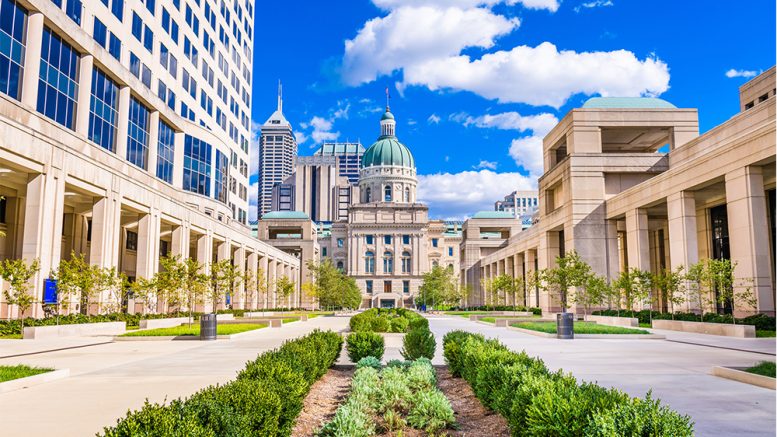Submitted
Every year, the United States celebrates Hispanic Heritage Month from Sept. 15 to Oct. 15. This is an opportunity to reflect on the significant contributions made by Hispanic and Latino Americans, while also engaging in conversations on how to create pathways for greater economic opportunity and mobility for all Americans.
State Reps. Mike Andrade (D-Munster), Victoria Garcia Wilburn (D-Fishers) and Earl Harris Jr. (D-East Chicago) all represent Indiana’s growing Hispanic and Latino populations from their respective corners of the state. The three legislators all successfully carried important pieces of legislation during the 2023 session of the Indiana General Assembly that enhance public safety and increase access to higher education.

Garcia Wilburn
Garcia Wilburn, a fourth-generation Mexican American, passed House Enrolled Act 1321, which mandates annual in-service to help first responders facing mental health issues and prevent suicide among this population.
“My law is intended to fight the awful, sobering statistic that more police officers and firefighters die by suicide than in the line of duty,” Garcia Wilburn said. “We must ensure that law enforcement, fire and EMS personnel are properly supported so that their service can be a sustainable career for them. It’s critical that first responder teams are reflective of the communities they serve, and improving these stressful professions’ mental health outcomes will go a long way toward recruiting and retaining diverse staff. It’s only then that they can fully build trust with the communities they serve and keep everyone safe.”
Andrade, a first-generation Mexican American, passed House Enrolled Act 1396, which created a fund to equip all first responders with “stop the bleed” tourniquet kits to save the lives of civilians and first responders suffering from traumatic injuries.
“While I’m very thankful that this bill passed – and I look forward to seeing its impact for police departments and emergency response teams throughout the state – there is much more that needs to be done to strengthen public safety,” Andrade said. “Specifically, I hope that this session we’re able to pass legislation making driving cards accessible to immigrants without documentation. This legislation received a hearing last session, but it’s high time we make this a reality. This would not only ensure individuals without documentation receive the same driving instruction others receive, keeping themselves and everyone on the road safer. It also ensures that they can legally go about their day – like going to work, taking their children to school – without the fear of being pulled over while driving illegally. This also relieves law enforcement officers of the burden of being immigration enforcement officers during routine traffic stops. Driving cards are not just a social justice issue, they’re a public safety issue.”
Harris, who is both Mexican and African American, championed House Enrolled Act 1449 last session, which automatically enrolls eligible students into the 21st Century Scholars program. Created by former Gov. Evan Bayh, the 21st Century Scholars Program helps low-income students with a qualifying grade point average achieve a higher education. Since the passage of this bill – which was a piece of priority legislation for the Indiana Black Legislative Caucus (IBLC), of which Harris is chair – roughly 40,000 Hoosier students have been accepted into the 2027 cohort of the program.
“While this bill will help all low-income Hoosiers – regardless of race or nationality – it will especially help many Black and Hispanic students who are too often left behind by our education system,” Harris said. “The 21st Century Scholars program is incredibly effective – roughly 81 percent of participants go on to enroll in a college or university. Unfortunately, while Hispanic students are more likely than white students to be from a low-income family, Hispanic students are not proportionally represented in the program. This bill will change that by ensuring all eligible students are automatically enrolled. A higher education can open countless doors for a person, and I’m extremely proud to have authored legislation that will make it possible for more Hoosiers to better themselves, their families and their communities.”
For the three representatives, Hispanic Heritage Month’s coinciding with the end of voter registration in Indiana on Oct. 10 is an opportune moment to reflect on voting access for Hispanic and Latino Hoosiers.
“To have a truly representative democracy, the voices of all Americans must be heard at the polls and represented in our government,” they said. “Voting is a critical way to empower new citizens and first-generation Hispanic and Latino Hoosiers, but we sorely need more outreach and engagement with these communities on how to register to vote and participate in elections. It’s disappointing that the General Assembly focused on restricting mail-in voting access this year, but we will continue working to empower our community at the polls with accurate information.”
To check your voter registration, ballot options and polling locations, visit IndianaVoters.com.

